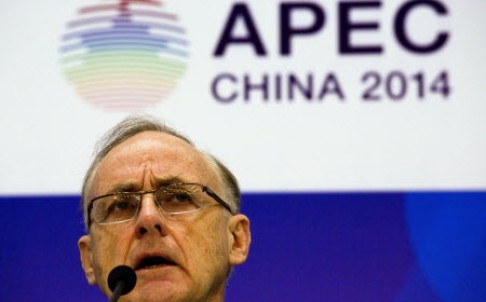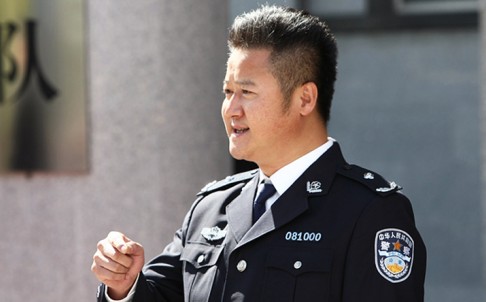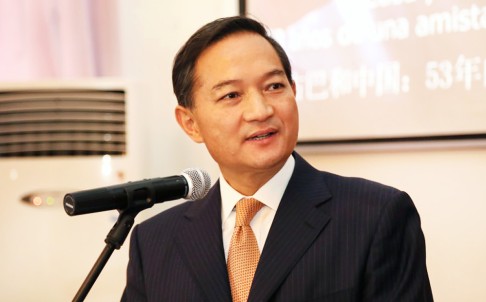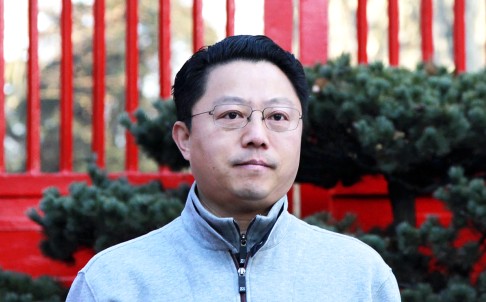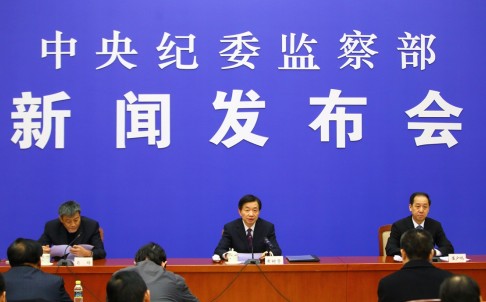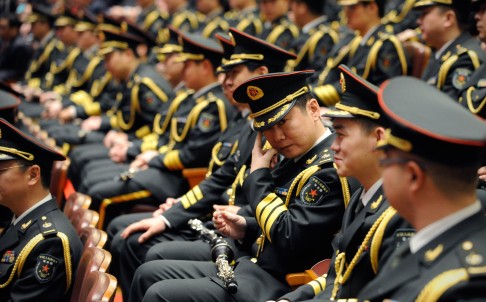Special Report: Fear and retribution in Xi's corruption purge
By David Lague , Benjamin Kang Lim and Charlie Zhu
HONG KONG/BEIJING Tue Dec 23, 2014 9:55pm EST
(Reuters) - Chen Zhenggao, a member of the Communist Party's elite Central Committee, clearly has enemies.
While Chen was visiting Hong Kong last year, his adversaries were preparing a detailed dossier on his travel and entertainment spending. Soon after the visit, mainland businessmen passed the documents to Reuters.
Among the materials was video surveillance footage of the powerful politician, then the governor of China’s Liaoning province, stepping out of the plush Conrad Hotel in Hong Kong on the evening of April 24, 2013.
Chen was leading a large delegation of Liaoning officials seeking to drum up investment. A surveillance team in a car outside the hotel filmed him setting off for a stroll in the direction of nearby Hong Kong Park and returning about 20 minutes later. Chen was also under surveillance inside the hotel’s function rooms. Footage of him entering a suite with aides hovering around appears to have been shot with a concealed camera.
Material in the dossier shows that his delegation stayed at the Conrad and two other posh Hong Kong hotels, the Island Shangri-La and the Four Seasons. On the same evening Chen was filmed taking a stroll, documents show that the delegation hosted a banquet for about 30 guests at the Island Shangri-La. The elaborate menu included whole suckling pig and other Chinese delicacies costing more than $9,000, according to copies of a menu and the bill in the dossier.
There is nothing in the footage or the documents to suggest that Chen, who was born in 1952, did anything illegal. Reports in the official Chinese press confirm that he was in Hong Kong at the time. They also said that his delegations have secured substantial investment in Liaoning, a northeastern province where the economy has expanded faster than China’s overall growth rate in recent years.
The dossier provides rare insight into the vast purge now convulsing the Chinese Communist Party under President Xi Jinping. The mainland businessmen who provided the dossier, along with material on multiple earlier missions Chen led to Hong Kong and overseas, were frank about their intention: to paint the then-governor as a profligate spender and put him in the sights of corruption investigators who are hunting officials all over China on Xi’s orders. As part of his crackdown on graft, Xi is demanding that senior officials halt lavish travel and entertainment.
The detailed nature of the documents purportedly describing Chen’s visit illustrate the lengths some in China are prepared to go to in an effort to exploit the crackdown. Xi’s graft busters are urging whistle-blowers to denounce officials as well as managers of state-owned companies in a campaign that is taking on some of the frenzy of the mass political movements of the Party’s early years. The crackdown is providing a rare opportunity to bring down the high and mighty in what is normally a tightly hierarchical party.
“In terms of its breadth and depth, this anti-corruption campaign is unparalleled in New China’s history,” a person with ties to the Chinese leadership said, referring to the period since the 1949 revolution when the Communists won a civil war and swept to power.
DEATH THREATS
One item in the Chen dossier speaks to the zeal for naming names: dozens of photographs taken of attendees’ name plates on hotel banquet tables.
Chen did not respond to emailed questions sent to his office about the surveillance, the size of the delegation he brought to Hong Kong or the cost to taxpayers. Telephone calls to his office were not answered.
Spokespeople for the Conrad, Shangri-La and Four Seasons all declined to answer questions about Chen’s visit, citing the hotels’ privacy policy.
Xi has not put a ceiling on the number of arrests or set a timetable for the crackdown to end. As the purge continues, it is tearing down once untouchable Party, military and business leaders and rolling up their powerful networks of relatives and allies.
In this climate of fear and retribution, the leadership is not taking chances. Security has been stepped up for Xi, his top graft buster, Wang Qishan, and General Liu Yuan who blew the whistle on rampant corruption in the military, two sources with ties to the leadership in Beijing said. General Liu, one of Xi’s closest confidantes, has received death threats for exposing senior officers who were selling promotions to top posts, the sources said. Reuters could not independently confirm the death threats.
If Xi is worried, it doesn’t show. In public, whether it’s reviewing a parade, meeting a foreign leader or hosting a business delegation, he’s always smiling, relaxed and seemingly self-assured.
It is an image the mainland state-run media and pro-Beijing newspapers in Hong Kong are keen to propagate. “People making threats say we should wait and see what is in store for us but I simply say, who is afraid of who?” Xi was quoted as telling a closed-door meeting of the Politburo on June 26 this year, in reference to critics of his anti-corruption campaign. The July 25 report was carried on the website of the Hong Kong-based Ta Kung Pao newspaper.
ELIMINATING RIVALS
In his speeches and commentaries, Xi argues that cleaning up the 86 million-strong Communist Party is essential if it is to retain power. To date, 59 officials who held a rank equivalent to vice cabinet minister or above have been investigated for graft since Xi took power in late 2012, according to lists compiled by the state-run media. The bosses of state-owned enterprises are also under intense scrutiny: the Central Commission for Discipline Inspection (CCDI), the party’s internal watchdog, said on December 16 that 74 senior executives from these firms are now under investigation for corruption.
In addition to cleaning up the party, Xi is also cementing his leadership and eliminating dangerous rivals. His most senior victim is former internal security chief, Zhou Yongkang. Zhou, born in December 1942, was a member of China’s most powerful decision-making body, the Politburo Standing Committee, until his retirement in 2012. He is now almost certain to become the most senior Chinese leader to be prosecuted for corruption since 1949. As is routine in Chinese corruption cases, Zhou couldn’t be reached for comment. It is not known if he has a lawyer.
Allegations of corruption aside, Zhou’s offense was to mount a daring grab for power. He attempted to inject his supporters into the senior leadership so he could continue to wield influence in retirement, according to people familiar with his case.
The most recent senior casualty is Ling Jihua, who had served as a senior aide to former president Hu Jintao. In a terse statement on its website, the CCDI said Monday that Ling was under investigation for “suspected serious discipline violations,” usually a euphemism for corruption. Ling, who once appeared to be headed for a top leadership post, was demoted in 2012 to head the United Front Work Department, an organ responsible for expanding Party influence at home and abroad.
Other top purge casualties include the former vice chairman of the Central Military Commission and Politburo member, General Xu Caihou, and Su Rong, until earlier this year a vice chairman of the Chinese People’s Political Consultative Conference, a top advisory body to Parliament.
EYE-POPPING STATISTICS
Despite the threat of a political backlash, Xi is sending a powerful signal at home and abroad that he will be a far more assertive leader than his predecessors, Hu Jintao and Jiang Zemin. “He has consolidated power faster and more comprehensively than anybody since Deng Xiaoping,” U.S. President Barack Obama told the Business Roundtable group of U.S. chief executives in Washington, D.C. earlier this month, comparing Xi to the late party giant who led China into its market reform era. Obama and Xi met last month in Beijing.
Xi’s anti-corruption czar, Wang Qishan, is widely regarded as one of China’s most determined and able leaders. Wang insists there will be no let-up in the corruption purge. State television reported that Wang, a member of the Politburo Standing Committee and head of the CCDI, told a conference of the anti-graft agency on October 25 in Beijing that the crackdown would never end.
Just like the economic ministries that routinely produce eye-popping measures of China’s factory output, exports or foreign investment, the CCDI is now pumping out statistics to demonstrate the campaign’s successes. Last year, 182,038 Party members were punished for breaches of discipline, the CCDI said, without specifying the nature of the offences or the penalties. This was a 13.3 per cent increase on 2012, it said at a news conference on January 10.
Prosecutors investigated 10,840 people in the first three months of this year, according to the most recent figures from China’s chief anti-corruption prosecutor. This was almost 20 per cent more than the same period last year. Through its telephone hotline and website, the record for reports from whistle blowers was 800 in a single day, the CCDI said.
And the effort goes beyond China’s borders. In an operation dubbed Fox Hunt, 428 fugitives suspected of economic crimes have been captured overseas and returned to China, the official Xinhua News Agency reported on December 9. The report said 231 of these people had returned voluntarily. The country’s top prosecutor, Cao Jianming, told Parliament on March 10 that 10.14 billion yuan ($1.65 billion) in “dirty money” and property was recovered last year.
CLIMATE OF FEAR
In an indication Xi and Wang have little faith in local authorities, the CCDI has adopted a shock and awe approach, deploying teams of graft busters across China to mount surprise inspections at all levels of government and state-owned business. The CCDI openly encourages a climate of fear. The teams aim to “uncover problems and achieve an intimidating effect,” it said in an October 16 statement on its website.
Since Xi took power, the CCDI has deployed inspection teams to all of China’s 31 provincial-level regions, the agency said in the October 16 statement. Earlier this month, graft busters moved into the upper reaches of the party bureaucracy, which report to the Central Committee, in what Xinhua described as an “unprecedented” step. Teams have also been sent to six state-owned enterprises, seven institutes, two universities and the Xinjiang Production and Construction Corps, a semi-military government authority in the frontier region, the CCDI said.
The anti-graft agency also publishes guidelines on how the teams should work. First, they should research the body they are targeting for inspection, studying the background of its leaders and officials to prepare for one-on-one interviews. After “descending on the inspection target,” the teams should publicly announce their contact details, including a hotline and a mail box for whistle blowers. When they withdraw, these contacts should be scrapped.
The commission describes the work of one hard charging team in Fujian province in the southeast. After the team has conducted a routine inspection, it will return for a more specific probe, only giving the local officials notice of a day or two.
“When it conducts its probe, it will focus on just one particular area, such as property development and land transfer in the city or county,” the CCDI said in an October 31 statement. “It will seek to find out whether the local party or government leaders have taken bribes from private developers.”
The CCDI did not respond to questions sent by fax to its Beijing office.
Whistle blowers have had some success. Liu Tienan, the former deputy head of China’s powerful economic planning agency, the National Development and Reform Commission, was sentenced to life in prison earlier this month for accepting $5.8 million in bribes after a journalist accused him of graft.
ENDING THE NIGHTMARE
For some, the pressure is too much. At least 32 officials have committed suicide this year, according to lists compiled by the online edition of the outspoken newspapers Southern Weekend and the International Business Times. It was unclear if the officials killed themselves because they came under investigation for corruption. Comparative figures were not available.
“Usually, when a (corrupt) official commits suicide, the investigation ends. It is difficult to go after his family’s assets,” a retired party official told Reuters. “Also, a suicide ends the nightmares of a (corrupt) official’s friends, who will in turn look after his family.”
For now, Chen Zhenggao seems untouched, despite the efforts to draw attention to his travel spending. After six years as Liaoning provincial governor, he was transferred to Beijing in June to become minister for housing and urban-rural development, a sideways move.
If Chen has a vulnerability, it might be politics. He has long-standing links to Bo Xilai, the once powerful, and now disgraced, former party secretary of the megacity of Chongqing.
Before moving to Beijing, Chen spent his entire career in Liaoning province, where Bo was also posted for almost 20 years. From their official biographies, it appears the two men worked closely together. When Bo was mayor of Dalian city in Liaoning, Chen was his deputy. Later, when Bo served as provincial governor, Chen was vice-governor. Bo was sentenced to life in prison last year for corruption and abuse of power; his wife was convicted of murdering a British businessman.
Potentially offsetting Chen's links to Bo is that he also served under China's current Premier, Li Keqiang, when Li was party secretary of Liaoning from 2004 to 2007. Li, who is No. 2 behind Xi in the leadership, would have the power to protect officials close to him.
STAGE-MANAGED TRIALS
For critics of China’s political and legal system, the biggest shortcoming of the crackdown is the process – straight out of the Party playbook. They note an almost total lack of transparency as suspects are rounded up, detained and questioned. Zhou Yongkang has been under virtual house arrest for more than a year but it is not disclosed where he is being held or whether he has legal representation. The Party has yet to decide if he will have a public trial, according to people familiar with the probe.
The public hearings that have been held so far have been carefully choreographed. Only selected elements of the trial of Liu Han, the Sichuan mining executive sentenced to death in May, were made public. Evidence was never tested in open court. His appeal was rejected but he has since been held in custody without any news of when the execution will take place. The trial of top government planner, Liu Tienan, was similarly stage managed.
While the Party leadership remains above the law, critics say, it will not be possible to contain another outbreak of graft in the future. “China needs to fight corruption with the rule of law,” says Wang Yukai, deputy head of the Beijing-based research institute, the China Society of Administrative Reform, and a professor with the China National School of Administration. “It must make the transition from a political movement type of anti-corruption campaign to institutional law.”
(Editing by Peter Hirschberg and Michael Williams)



